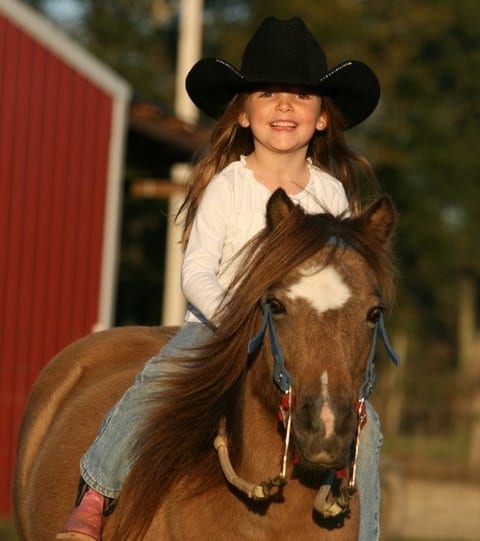It’s no secret that the struggling economy has negatively impacted horse shows. Shows are smaller and sales are less often as fewer and fewer people are involved in the industry that we all love so much. The good news is that the economy appears to be rebounding, sales are up and people are making plans to attend their next show. However, we always know there is room for improvement.
With this in mind, GoHorseShow.com asked several individuals involved in the industry this
complex question: Aside from the economy, what’s the most important thing that we can control that is negatively impacting the horse industry and more importantly, how do you suggest we fix it?
We received a wide variety of answers from amateurs, novices, trainers, judges, show managers, breeders, equine photographers, equine political activists, and even former competitors across all breeds associations. Let’s see what everyone had to say. What are your thoughts on how to improve the horse industry? We want to hear from you! Please express yourself using the comments section at the bottom.
 AQHA Judge and Trainer Steve Meadows—Right now, I would say that the main thing that is hurting the equine industry is that everything has gotten so specialized. There is so many different disciplines now that have their own associations: WCHA, NSBA, NRHA, NRCHA, and NCHA. Everything is so fragmented, and it seems to be hard for shows to be successful unless it caters to a particular discipline.The Congress can hold all of these different events where there is one week specifically designated for NRHA classes with a bit of AQHA mixed it–but most shows are unable to pull that off. I think that the separate discipline organizations need to be a little more user friendly and try to work more closely with the breed organizations. NSBA has gotten a lot more user friendly, but I think there is more that can be done. NSBA ended up following suit with AQHA and other breed organizations by allowing exhibitors to lease horses. So, it is a great start but in order for the horse industry to thrive–we all need to work together for the common good of the entire industry.
AQHA Judge and Trainer Steve Meadows—Right now, I would say that the main thing that is hurting the equine industry is that everything has gotten so specialized. There is so many different disciplines now that have their own associations: WCHA, NSBA, NRHA, NRCHA, and NCHA. Everything is so fragmented, and it seems to be hard for shows to be successful unless it caters to a particular discipline.The Congress can hold all of these different events where there is one week specifically designated for NRHA classes with a bit of AQHA mixed it–but most shows are unable to pull that off. I think that the separate discipline organizations need to be a little more user friendly and try to work more closely with the breed organizations. NSBA has gotten a lot more user friendly, but I think there is more that can be done. NSBA ended up following suit with AQHA and other breed organizations by allowing exhibitors to lease horses. So, it is a great start but in order for the horse industry to thrive–we all need to work together for the common good of the entire industry.
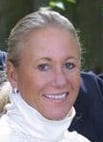 Amateur Exhibitor Gerri Leigh Pratt–I think we need more fun at the horse shows. The show committees need to do more for the people showing. The people showing that are not the winners need some reason to come back and try again–even if it’s for the fun and camaraderie. I think awards are very important, and many shows do not provide them. People just want something for their time, money, and effort.
Amateur Exhibitor Gerri Leigh Pratt–I think we need more fun at the horse shows. The show committees need to do more for the people showing. The people showing that are not the winners need some reason to come back and try again–even if it’s for the fun and camaraderie. I think awards are very important, and many shows do not provide them. People just want something for their time, money, and effort.
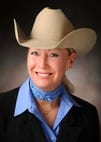 AQHA Judge and Trainer Gigi Bailey—For me, it is the support that we do not provide for the younger trainers and the beginner exhibitors. I am quite excited for the AQHA Leveling program, I hope it provides a more positive venue for many of our exhibitors and trainers. I believe that people own horses and equipment and clothing and trucks and trailers, so, they will show, but they will show where they can learn, be successful and most importantly, have fun.
AQHA Judge and Trainer Gigi Bailey—For me, it is the support that we do not provide for the younger trainers and the beginner exhibitors. I am quite excited for the AQHA Leveling program, I hope it provides a more positive venue for many of our exhibitors and trainers. I believe that people own horses and equipment and clothing and trucks and trailers, so, they will show, but they will show where they can learn, be successful and most importantly, have fun.
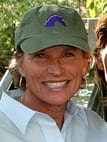 Equine Sales Consultant Ruth Ellen of The Horse Source–There are still many examples pertaining to the lack of full disclosure on the part of “sellers”. Full disclosure would entail coming forth with complete medical records as well as pertinent information regarding a horse’s training program. When presented with this information BEFORE a pre-purchase, buyers are then able to make a decision as to whether to proceed in the ‘buying process’ before they’ve spent their own money on a pre-purchase to
Equine Sales Consultant Ruth Ellen of The Horse Source–There are still many examples pertaining to the lack of full disclosure on the part of “sellers”. Full disclosure would entail coming forth with complete medical records as well as pertinent information regarding a horse’s training program. When presented with this information BEFORE a pre-purchase, buyers are then able to make a decision as to whether to proceed in the ‘buying process’ before they’ve spent their own money on a pre-purchase to
find out what the seller already knew.
 Breeder Candace Jussen—-Creating a firestorm of panic in regard to genetic mutations from an evolutionary process that occur with our horses, is not helping anything. Learning about HERDA, HYPP, GBED, PSSM and any other maladies, is to our benefit and we should embrace that knowledge. Instead, panic sets in and great horses are black balled, reputations are ruined, businesses are lost-all because of the lack of knowledge. Very much like AIDS, we need to stop the panic. We can help to deflect the downfall caused from rumors if we refrain from participating in stallion bashing.
Breeder Candace Jussen—-Creating a firestorm of panic in regard to genetic mutations from an evolutionary process that occur with our horses, is not helping anything. Learning about HERDA, HYPP, GBED, PSSM and any other maladies, is to our benefit and we should embrace that knowledge. Instead, panic sets in and great horses are black balled, reputations are ruined, businesses are lost-all because of the lack of knowledge. Very much like AIDS, we need to stop the panic. We can help to deflect the downfall caused from rumors if we refrain from participating in stallion bashing.
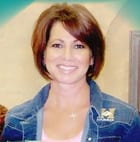 AQHA/APHA Judge Jodi Finkenbinder—-My thoughts on the industry is that people need to keep in mind we are not movie stars. We are people and this is a hobby related industry. It is supposed to be fun and a lifestyle. It’s about the animal and companionship. It’s a social thing as much as competition for many. So when it’s not fun anymore, people don’t want to play. For those who are successful, I feel it’s their responsibility to share their knowledge and encourage those who have the interest. Be helpful and embrace everyone who is interested in participating on whatever level they are able.
AQHA/APHA Judge Jodi Finkenbinder—-My thoughts on the industry is that people need to keep in mind we are not movie stars. We are people and this is a hobby related industry. It is supposed to be fun and a lifestyle. It’s about the animal and companionship. It’s a social thing as much as competition for many. So when it’s not fun anymore, people don’t want to play. For those who are successful, I feel it’s their responsibility to share their knowledge and encourage those who have the interest. Be helpful and embrace everyone who is interested in participating on whatever level they are able.
 Gordyville Show Manager Jody Hannagan Quiram—I think the western pleasure and hunter under saddle industry is being impacted by a decrease in entries due to a decrease in young horse trainers. Our industry has excelled to a top level, and it is hard to break into that industry and win. I would like to see AQHA add a program where the non pro or amateur can apprentice with a trainer for a year or two to see if they can make a living in that industry. If they do not want to continue, then, they get their amateur card back. The open western pleasure and hunter under saddle classes are down. I would like to add a class for apprentices in the western pleasure and hunter under saddle at the AQHA shows. Kind of like NRHA’s Rookie Professional class. Trainers will have an opportunity to put one more horse on the trailer, one more horse at the show to increase attendance, experience for the up and coming trainer and maybe that second string horse have some accomplishment that may never see the show pen.
Gordyville Show Manager Jody Hannagan Quiram—I think the western pleasure and hunter under saddle industry is being impacted by a decrease in entries due to a decrease in young horse trainers. Our industry has excelled to a top level, and it is hard to break into that industry and win. I would like to see AQHA add a program where the non pro or amateur can apprentice with a trainer for a year or two to see if they can make a living in that industry. If they do not want to continue, then, they get their amateur card back. The open western pleasure and hunter under saddle classes are down. I would like to add a class for apprentices in the western pleasure and hunter under saddle at the AQHA shows. Kind of like NRHA’s Rookie Professional class. Trainers will have an opportunity to put one more horse on the trailer, one more horse at the show to increase attendance, experience for the up and coming trainer and maybe that second string horse have some accomplishment that may never see the show pen.
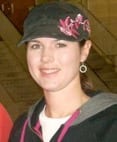 APHA and AQHA Trainer Alisa Bernhard–I would say that a rider who is new to showing on the top level circuit or considering to start, could easily become discouraged to participate because of the “glitz and glamour” of it all. It’s easy to feel intimidated when they don’t believe they can afford the fancy show tack and clothes–wondering would they still fit in? It’s a wonderful trend lately to see the return of “less is more.” Riders these days have gone back to the basics of show clothing and tack and are letting their riding and performances speak for themselves. It’s not uncommon now to see riders in the western classes wearing a plain and fitted collared blouse tucked in and a more modest looking show saddle with minimal silver. The whole picture looks neat and clean and it’s a breath of fresh air to see a more simplistic look as THE new trend of the season. It’s a look that anyone can wear no matter what your budget or skill level!
APHA and AQHA Trainer Alisa Bernhard–I would say that a rider who is new to showing on the top level circuit or considering to start, could easily become discouraged to participate because of the “glitz and glamour” of it all. It’s easy to feel intimidated when they don’t believe they can afford the fancy show tack and clothes–wondering would they still fit in? It’s a wonderful trend lately to see the return of “less is more.” Riders these days have gone back to the basics of show clothing and tack and are letting their riding and performances speak for themselves. It’s not uncommon now to see riders in the western classes wearing a plain and fitted collared blouse tucked in and a more modest looking show saddle with minimal silver. The whole picture looks neat and clean and it’s a breath of fresh air to see a more simplistic look as THE new trend of the season. It’s a look that anyone can wear no matter what your budget or skill level!
 Select Amateur Susan Wilson—-I think the most important thing impacting the horse industry is that young people today seem to be more interested in computers, television, video games, et cetera rather than being outdoors and possibly involved with animals. I think the way to fix it is for every person that is involved in the horse industry should find at least one young person to mentor to get them involved with horses. If you provide an opportunity to someone who would have never otherwise known the joy of being around horses, you might find that they could end up preferring horses over the other activities available. Young people need to become involved if the horse industry is going to thrive.
Select Amateur Susan Wilson—-I think the most important thing impacting the horse industry is that young people today seem to be more interested in computers, television, video games, et cetera rather than being outdoors and possibly involved with animals. I think the way to fix it is for every person that is involved in the horse industry should find at least one young person to mentor to get them involved with horses. If you provide an opportunity to someone who would have never otherwise known the joy of being around horses, you might find that they could end up preferring horses over the other activities available. Young people need to become involved if the horse industry is going to thrive.
 Show Manager George Kane—-I hear from exhibitors that complain about drug fees and cost of shows, but the flat rate seems to be helping in that regard, but will it be enough? I don’t think it will. The one thing I see is too many shows to pick and chose from–this is a regional problem that needs handling. I have asked many times for the Mississippi Quarter Horse Association to appoint a committee to sit down and talk to other affiliates and map out shows with each other to give everyone a good piece of the pie; i.e. one show a month in the region approved by all affiliates. The horse industry is shrinking, and more people are either not showing or getting out all together. If we don’t start coming up with solutions soon, I feel we will see much worse coming soon.
Show Manager George Kane—-I hear from exhibitors that complain about drug fees and cost of shows, but the flat rate seems to be helping in that regard, but will it be enough? I don’t think it will. The one thing I see is too many shows to pick and chose from–this is a regional problem that needs handling. I have asked many times for the Mississippi Quarter Horse Association to appoint a committee to sit down and talk to other affiliates and map out shows with each other to give everyone a good piece of the pie; i.e. one show a month in the region approved by all affiliates. The horse industry is shrinking, and more people are either not showing or getting out all together. If we don’t start coming up with solutions soon, I feel we will see much worse coming soon.
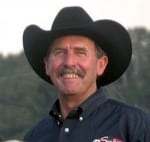 PHBA Trainer Doug May—-I believe we need to bring the killer market (horse slaughter) back but with regulations. The lower price horse market is really hurt by not having a floor. Second thing we could do is regulate the amount of shows we have in a given area. I believe if each area had fewer shows the ones held would be larger.
PHBA Trainer Doug May—-I believe we need to bring the killer market (horse slaughter) back but with regulations. The lower price horse market is really hurt by not having a floor. Second thing we could do is regulate the amount of shows we have in a given area. I believe if each area had fewer shows the ones held would be larger.
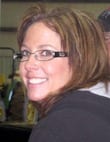 AQHA Trainer Windy Kennedy Allen—I would definitely say the leveling program from AQHA has to be implemented. There needs to be a place for the horses and riders to achieve success or they will not continue to do this. I’m not sure the program is exactly right the way it is, because I have not had an opportunity to read all of it. But I think it is definitely a step in the right direction.
AQHA Trainer Windy Kennedy Allen—I would definitely say the leveling program from AQHA has to be implemented. There needs to be a place for the horses and riders to achieve success or they will not continue to do this. I’m not sure the program is exactly right the way it is, because I have not had an opportunity to read all of it. But I think it is definitely a step in the right direction.
 Former APHA/NRHA Competitor Carson Underwood–
Former APHA/NRHA Competitor Carson Underwood–
We also have a flooded market with shows, just like in the stock market if you dilute your stock by increasing shares you’re going to ultimately lower the overall price; which is what we’ve (APHA) done. If only we were to cut the number of all shows, you’d see an increase in the capital of the Association and the state associations, too. People in this “economy” can only attend so many shows per month. Cut the number and you’ll see profits increase, just like a share–buy back in the stock market.
 AQHA Amateur Exhibitor Teresa Porter—Other than the economy negatively impacting our industry, it would be nice to see more spectators at the shows. I believe greater attendance could be encouraged with no fees for spectators, more stands for people to sit in and watch at some facilities, along with better advertising locally in the papers and on the radios. Also incorporation of fun activities for spectators or 30 minute talks/ demonstrations during breaks could leave a lasting impressions.
AQHA Amateur Exhibitor Teresa Porter—Other than the economy negatively impacting our industry, it would be nice to see more spectators at the shows. I believe greater attendance could be encouraged with no fees for spectators, more stands for people to sit in and watch at some facilities, along with better advertising locally in the papers and on the radios. Also incorporation of fun activities for spectators or 30 minute talks/ demonstrations during breaks could leave a lasting impressions.
A mobile equine ambassador for AQHA might make an impact in spreading the word of what a horse can do for a child or their family to bring them together in these hard times. Having a horse was the best thing for me as a child and to this day still is – if we can get that message across to a broader group of people it would be huge.
 Over Fences Specialist and 2011 Congress Judge Tim Jedra—There is an abundance of great knowledge in this industry to utilize, but what I also see happening is that someone new to the industry is taken advantage of, misguided, or has simply ended up with someone who has just decided to hang up a sign and call themselves a horse trainer. When this happens, individuals end up with a bitter taste in their mouth and leave the industry not having the proper education or chance to experience what great things it has to offer.
Over Fences Specialist and 2011 Congress Judge Tim Jedra—There is an abundance of great knowledge in this industry to utilize, but what I also see happening is that someone new to the industry is taken advantage of, misguided, or has simply ended up with someone who has just decided to hang up a sign and call themselves a horse trainer. When this happens, individuals end up with a bitter taste in their mouth and leave the industry not having the proper education or chance to experience what great things it has to offer.
Though, there is not a clear solution, I often look at other careers that require a degree, a trade license, or state and national certifications to operate business. If mistakes are made, there are usually consequences. Proper education and commitment to the industry are an important baseline.
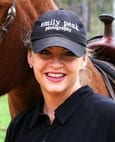 Amateur and Equine Photographer Emily Jo Starkey Peak—Perception of how much we really know as horse owners. I have seen many people who think because they own a horse they’re an expert. Personally the more I learn from my mentors, the more I realize I don’t know. Education of the horse owner is the most important thing in my opinion and that ultimately leads to better lives for the horses.
Amateur and Equine Photographer Emily Jo Starkey Peak—Perception of how much we really know as horse owners. I have seen many people who think because they own a horse they’re an expert. Personally the more I learn from my mentors, the more I realize I don’t know. Education of the horse owner is the most important thing in my opinion and that ultimately leads to better lives for the horses.
How to fix that? Some people, and we’ve all met at least one person like this–you can’t teach them anything! You can have diagrams, clinics, books, DVDs– all of that right in front of them and they’re still going to go out and do all the bad horsemanship they did before. But, I have faith that the majority of owners, if you can at least put the information out there, they will eventually get it. Most people do want to improve themselves as riders and as horse owners.For me, I don’t ever want to be considered an expert. I just want to be known as a student who is always striving to be a better horseman.
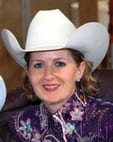 AQHA Amateur Beckie Peskin—Honestly, I think one of the biggest issues (not an AQHA issue, but for other organizations) is the lack of any medication rules for some show organizations. As responsible industry members, we need to be aware of external views of our sport. There is always a “loud” party in government ready and willing to make noise about the treatment of sport horses…and medication rules are a very hot topic.
AQHA Amateur Beckie Peskin—Honestly, I think one of the biggest issues (not an AQHA issue, but for other organizations) is the lack of any medication rules for some show organizations. As responsible industry members, we need to be aware of external views of our sport. There is always a “loud” party in government ready and willing to make noise about the treatment of sport horses…and medication rules are a very hot topic.
My other comment is my concern over the future of new pharmaceuticals for horses. The horse market is small compared to companion animals, so the incentive for companies to invest the $20+million it takes to bring a new product to market is low. Even when companies do spend the money, because of the economy, etc horse owners are quick to try to find cheaper alternatives (compounded drugs – which are both illegal if a labeled drug is available AND which often don’t work as well, etc). I really don’t see many companies taking these kind of financial risks down the road b/c they have to be able to do so knowing it will be profitable at least until the generics of it come. That means our own horses may have to be guinea pigs for human or companion animal drugs that we ‘hope’ work for them at some point. Not something I really want my horse to be.
 Breeder and Equine Political Activist Diane Chilton-Harper–Educate our horse people about how much PETA and the American Humane Society are out to get us.
Breeder and Equine Political Activist Diane Chilton-Harper–Educate our horse people about how much PETA and the American Humane Society are out to get us.
Because we love our animals, we have no idea that PETA wants our horses turned completely out. They have stopped slaughter and we watch horses being neglected and starved. You think slaughter is harsh, come see the rescue horses I have worked with here in Pilot Point, Texas– the land of horses and fabulous ranches.
People in New York City who have never raised or touched horses are deciding what our rights are. If they make horses pets, which they want to do, we lose our agricultural exemptions. Taxes would eat me alive. We have got to continue to educate our people and learn how really approachable our legislators are–take it from one who knows.
 Amateur and Equine Political Activist Paul Bailey–Horse slaughter/horse processing/over breeding. By eliminating horse processing, the government has taken away a market for the unwanted horse. Thus driving down the value of the mid to lower end horse and flooding the market with unusable horses.
Amateur and Equine Political Activist Paul Bailey–Horse slaughter/horse processing/over breeding. By eliminating horse processing, the government has taken away a market for the unwanted horse. Thus driving down the value of the mid to lower end horse and flooding the market with unusable horses.
We fix the problem by educating horse owners on breeding. Not everyone needs to be in the breeding business. A large percentage of unwanted horses tend to come from the backyard breeder rather than established breeding programs. I think we have seen some correction the past couple of years though.
The second solution is to lobby, lobby, lobby, congress, and our state legislators, to ensure that the horse remains livestock and not a companion animal. Horse industry leaders must take an active roll by either donating their time to visit their legislator or be willing to donate money to a PAC. We must never forget that our opposition is well funded and has a clear message.
What are your thoughts on how to improve the horse industry? We want to hear from you! Please express yourself using the comments section below.


